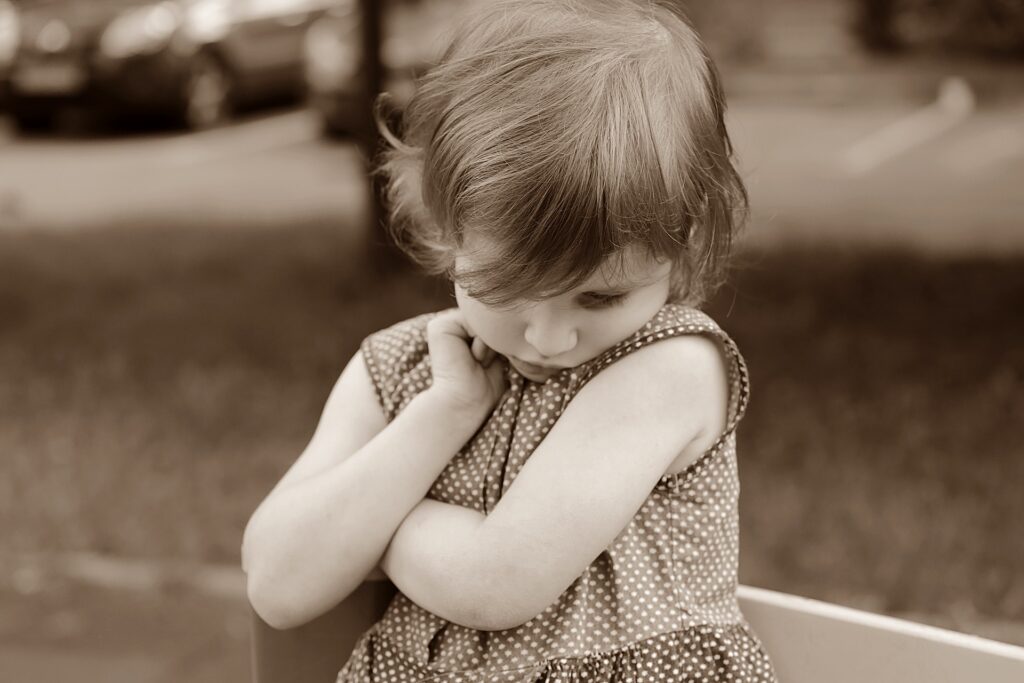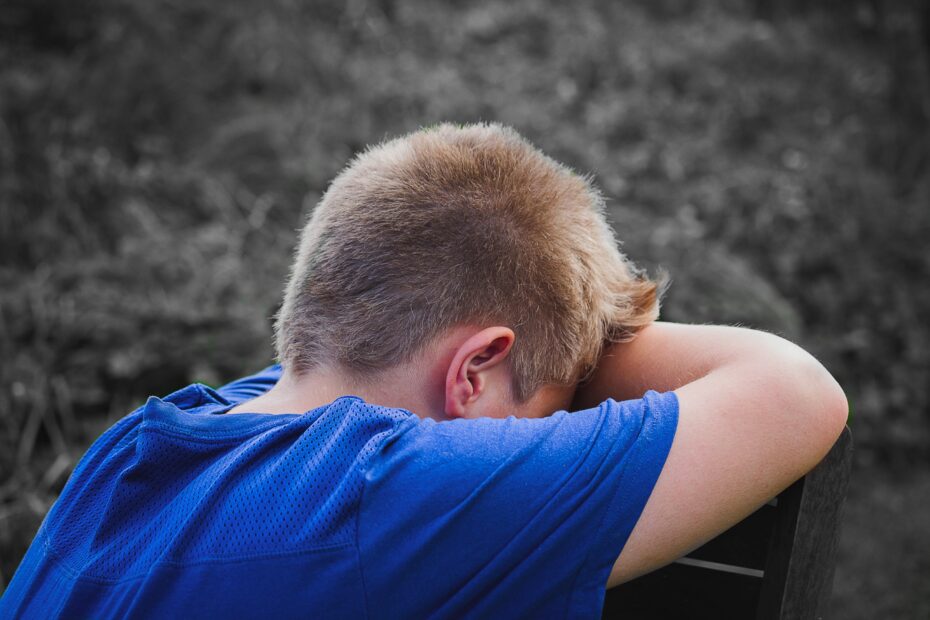Who is a disrespectful child?
A child is disrespectful when he or she acts in a way that shows they don’t respect or care about authority. The child’s misconduct doesn’t take into consideration the feelings of the parents or older people. For example, talking back to or arguing with parents. It can also take the form of ignoring their instructions. Also, do not treat them with respect or good manners. Disrespect toward parents and elders can be hurtful and damaging to cordial relationships. It is important for children and young people to learn to show respect and consideration for their elders.

The causes of disrespect towards parents and elders
There can be a variety of causes for disrespect towards parents and elders. Some common factors may include:
Limited or no communication: If children and parents are not communicating effectively, it can lead to misunderstandings and a breakdown in respect.
Lack of boundaries: parents should establish clear boundaries and consequences for misbehavior. This will discourage children from feeling they can get away with disrespectful behavior.
Little or no parental involvement: Children who do not feel connected to their parents may be more likely to show disrespect. Moreso, children whose parents are not involved in their lives.
Peer pressure: Children may be influenced by their friends to behave disrespectfully toward their parents or elders.
Stress or other emotional factors: Children who are under a lot of stress may be more prone to disrespectful behavior. Likewise, children who are dealing with other emotional issues
Developmental factors: At a developmental stage, disrespect is very common in children. This is more common when they are trying to find their independence as teenagers.
Parents should try to discover why their kids are acting disrespectfully. This reason for their actions should be discussed with them in a positive way. This could mean setting clear goals and limits, keeping the lines of communication open, and giving emotional support and direction.
What does the bible say about disrespect to parents?
Colossians 3:20: Children, obey your parents in everything, for this pleases the Lord.
Ephesians 6:1-3: Children, obey your parents in the Lord, for this is right. “Honor your father and mother.” “That it may go well with you, and that you may live long in the land,” says the first commandment with a promise.
Exodus 21:15: Whoever strikes his father or his mother shall be put to death.
Exodus 20:12: “Honor your father and your mother, that your days may be long in the land that the Lord your God is giving you.”
Leviticus 20:9: “Anyone who curses his father or his mother shall surely be put to death; he has cursed his father or his mother; his blood is upon him.”
Proverbs 23:22: Listen to your father, who gave you life, and do not despise your mother when she is old.
Proverbs 20:20 If one curses his father or his mother, his lamp will be put out in utter darkness.
Ephesians 6:1-24: Children, obey your parents in the Lord, for this is right. “Honor your father and mother” (this is the first commandment with a promise), “that it may go well with you and that you may live long in the land.” Fathers, don’t make your kids angry. Instead, teach them the Lord’s ways and discipline them as they grow up. Slaves, obey your earthly masters the same way you would obey Christ: with fear and trembling and a sincere heart.
Deuteronomy 5:16: Honor your father and your mother, as the Lord your God commanded you, that your days may be long, and that it may go well with you in the land that the Lord your God is giving you.
How do I deal with a disrespectful child?
Here are a few strategies you can try to deal with a disrespectful child:
Set clear expectations and consequences. Tell your child what is and isn’t okay to do, and let them know what will happen if they don’t follow the rules. This can help your child understand that their behavior has consequences.
Stay calm. It can be difficult to remain calm when your child is being disrespectful, but try to remain composed and avoid yelling or getting angry. This will make it easier to have a productive conversation with your child.
Talk to your child: Try to have an open and honest conversation with your child about their behavior. Ask them why they are behaving disrespectfully and listen to their perspective. This can help you understand their perspective and find ways to address the underlying issues.
Model respectful behavior: Children often learn by example, so it’s important to model respectful behavior yourself. If you are disrespectful towards your child, they are more likely to behave disrespectfully towards you.
Give your child positive feedback. When he or she acts in a respectful way, be sure to praise and reward them. This can encourage them to continue behaving in a respectful way.
Get outside help. If your child is acting disrespectfully and you can’t handle it, you might want to talk to a therapist or counselor. They can help you and your child figure out why your child is acting disrespectfully and do something about it.
Pay attention to your child’s nonverbal cues: Children may communicate their feelings or needs through nonverbal cues such as facial expressions or body language. Paying attention to these cues can help you understand what may be causing your child’s disrespectful behavior.
Read this article ” Raising a more responsible kids here”
Use “I” statements: When your child acts disrespectfully, try using “I” statements to talk about how you feel and what you want. For example, you could say, “I feel hurt and disrespected when you speak to me in that tone,” or “I need you to use a respectful tone when speaking to me.” This can help your child understand how their behavior is impacting you and encourage them to change their behavior.
Take a break: If you are feeling overwhelmed or frustrated, it may be helpful to take a break from the situation. This can give you time to calm down and collect your thoughts, which can help you approach the situation with a clearer mind.
Set limits: It’s important to set limits and boundaries for your child’s behavior. This can help them figure out what’s okay and what’s not, and stop disrespectful behavior from getting worse.
Encourage problem-solving: Rather than simply punishing your child for disrespectful behavior, try to encourage them to come up with their own solutions to problems. This can help them develop problem-solving skills and become more responsible and respectful.
Seek support: If you are struggling to manage your child’s disrespectful behavior, don’t be afraid to seek the support of friends, family, or a therapist. They can give you good advice and help you come up with good ways to deal with the behavior.

How do disrespectful children become successful in life?
It is not necessarily true that disrespectful children will not be successful in life. However, the disrespectful child can maneuver around their present challenges and barriers to success. Children who are disrespectful may find it hard to make and keep good relationships at home and in other parts of their lives. This can make it difficult for them to work effectively with others, which is a key component of success in many areas. Disrespectful behavior can also damage a child’s reputation and make it harder for them to be trusted or respected by others.
That being said, it is possible for children who have struggled with disrespectful behavior to learn to change their behavior and become successful in life. With the right support and guidance, children can learn to develop more positive and respectful behaviors and attitudes. It is important for parents and caregivers to work with children to help them understand the importance of respect and how to demonstrate it in their actions and words.
What are the consequences of disrespectful behavior in children
There is no “shocking truth” about children who disrespect their parents and elders that applies to every child. Every child is unique and may have different reasons for disrespectful behavior. However, some common consequences of disrespectful behavior in children can include:
Strained or damaged relationships: disrespectful behavior can strain or damage relationships with parents, elders, and other authority figures. This can lead to feelings of hurt, anger, and resentment. It can also make it difficult for children to form and maintain positive relationships.
Negative reputation: disrespectful behavior can damage a child’s reputation. And make it harder for them to be trusted or respected by others. This can have negative consequences for their social and academic success.
Discipline and punishment: disrespectful behavior may result in discipline or punishment from parents, teachers, or other authority figures. This can include losing privileges and other forms of punishment.
Emotional challenges: Children who struggle with disrespectful behavior may also face emotional challenges such as low self-esteem, anger, or anxiety. These emotions can be difficult to manage and may lead to further behavioral problems. It is important for parents and caregivers to work with children to help them understand the consequences of disrespectful behavior and to encourage more positive and respectful behaviors.
Difficulty in school: disrespectful behavior can make it more difficult for children to succeed academically. Teachers and other people in charge may not have as much patience or tolerance for disrespectful behavior, which can lead to punishments or lower grades.
Read this article ” The rebellious child”
Conflict with peers: Disrespectful behavior can also lead to conflict with peers. It is difficult for disrespectful children to make friends, and they may be excluded from social activities.
Emotional distance: When kids act disrespectfully, they can grow apart from their parents or other adults. Disrespectful children often feel they are not understood or supported. This can lead to feelings of isolation and disconnection.
Children’s disrespectful behavior can also make it hard for them to get along with other people in the future. Children who are rude may find it hard to maintain good relationships as adults with romantic partners, friends, and coworkers.
It is important for parents and caregivers to help children understand the consequences of disrespectful behavior. And to encourage more positive and respectful behaviors in them. This can help kids build strong, healthy relationships and set them up for success in the future.
Lastly, Deuteronomy 21:18-21
If a man has a rebellious son who will not obey the voice of his parents, and, though they discipline him, will not listen to them, then his parents bring him out to the elders of his city at the gate of the place where he lives, and they shall say to the elders of his city, ‘This our son is stubborn and rebellious; he will not obey our voice; he is a glutton and a drunkard.’ Then the entire city will stone him to death with stones. So you shall purge the evil from your midst, and all Israel shall hear, and fear.
Shop Children’s Kitchen Kits here
Shop Kishoo Children wear here
Miniclasix Children sweaters here
Children’s Bikes and Bicycles here

Pingback: “How To Install Good Manners In Kids: The Experts - PARENTING